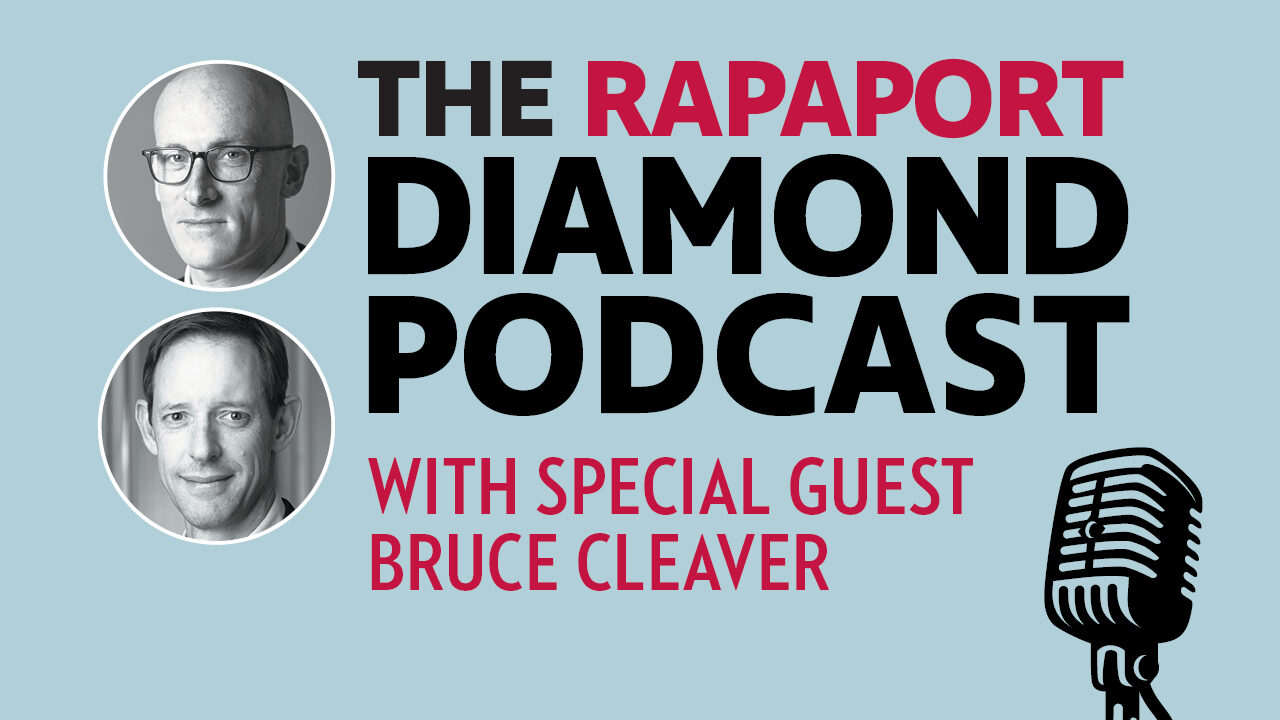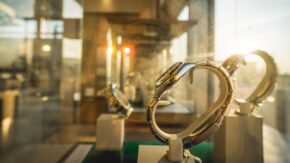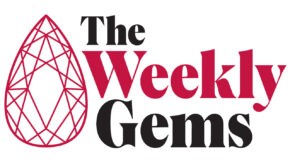A major De Beers investment in two of its flagship mines hinges on the ongoing negotiations with the Botswana government, cochairman Bruce Cleaver suggested in a recent interview on the Rapaport Diamond Podcast.
While the current 25-year mining licenses governing the operations of Debswana — the mining partnership between De Beers and the government — expires in 2029, the parties decided to bring forward the discussions since they need to make decisions relating to expansion projects at the Jwaneng and Orapa mines.
“We could have left it until 2029… but we and our partners felt it was responsible to renew it now,” Cleaver explained. “You need to start making investments now, so we don’t want to spend that money when the license is about to expire, with no certainty that it will be renewed… and nor does the Botswana government, because we all want the same thing, which is for production to continue at Debswana.”
The urgency relates to the fact that there are expansion projects required at Jwaneng and Orapa that will pay back, or produce diamonds, only after the license expires, Cleaver added.
For example, at Jwaneng, considered among the most profitable mines in the world, Debswana is currently mining “cut-8” of the operation, while work is being done to clear the ore body for “cut-9,” which will only begin yielding diamonds in 2029, according to Debswana’s website. With the open-pit mining projected to come to an end in 2032, the parties need to decide soon whether to go underground at that point.
“These are big, long complex projects,” Cleaver stressed. “This can take 10 years between the time you agree to start doing it and when you see your first ore.”
He points to the transition to underground mining at De Beers’ Venetia mine in South Africa where excavation work for the extension began in 2013 and the first production is expected only this year. The Venetia expansion came at an investment of $2 billion, De Beers has reported.
The talks between the government and De Beers over the mining licenses are running parallel with their ongoing negotiations for a new marketing and sales agreement.
The marketing deal has been delayed three times already, amid speculation the government is looking to change the structure of its partnership in a bid to gain more revenue from its production.
The government currently gets 25% of Debswana goods for independent sales through the parastatal Okavango Diamond Company. President Mokgweetsi Masisi was quoted as saying the government wants a larger share of the local output, and also that the government was prepared to walk away from the talks if its demands weren’t met.
The government last week signed an agreement with manufacturer HB Antwerp through which it agreed to supply HB Antwerp with rough from Okavango while also taking a 24% stake in the Belgian company. HB Antwerp has other partnerships in which mining companies gain a profit share from the resulting polished.
Speaking at the recent Israel Diamond Conference, Cleaver said he was confident they’d reach a deal that is fair to both sides — with the deadline for an agreement set for the end of June.
“We want to be in countries where people would like us to be, and we want to have deals with them,” he said. “So, I am confident we will get to a deal that is fair to both sides and that both parties are happy with.”
During the podcast discussion with Rapaport Senior Analyst Avi Krawitz, Cleaver also outlined De Beers’ views on traceability, branding, the lab-grown market, and current market conditions.
Listen to the podcast above.



